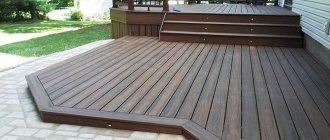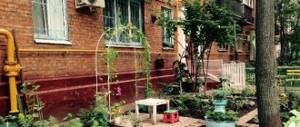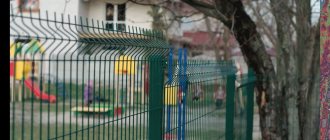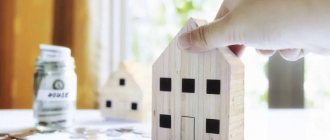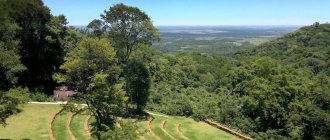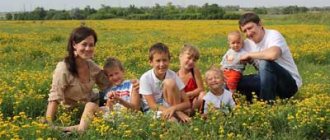Advantages
Purchasing a plot of land in DNT has its advantages:
- Buying land in DNT for permanent residence can be a profitable investment, since it is cheaper than in the city;
- At the same time, the plots themselves are cheaper due to their location on less fertile soils;
- There is an opportunity to purchase several plots located next to each other;
- The organization represents the interests of all participants, so issues do not need to be resolved independently.
Individual management
DNT differs from some other forms of organizing dacha plots in that citizens are given the right to manage their land plots without being a member of this organization.
Individual business owners get the opportunity to operate the partnership’s infrastructure.
Payment for the provision of various tools and other agricultural devices must be made under an agreement that the owner of the site signs with the board of this DNT.
It should be taken into account: the difference between the amount of payments for the owner of a plot that is not part of the organization and the contribution of a member of the partnership can be quite large.
Flaws
Using a site as a place of permanent residence also has disadvantages:
- Often, DNT lands are located far from infrastructure and it takes a long time to get to schools, shops, cultural and healthcare institutions;
- Communications will need to be connected to the building on the site, which is often more expensive than the site itself, and is also accompanied by administrative obstacles;
- It is impossible to take out a loan secured by a house or land in DNT;
- It is possible to register in a house built on land in the DNT, but in practice there are often difficulties with obtaining registration;
- Joint resolution of issues can also be a disadvantage in case of disagreements with neighbors;
- The need to pay membership fees or pay for the use of the partnership’s infrastructure.
Individual housing construction or SNT: which is better?
Individual housing construction and SNT are two types of plots that are intended for different purposes.
If we take into account only the construction of a residential property for further permanent residence, then it will be more convenient to purchase individual housing construction land. But if the acquired territory will be developed for farming, then it is worth paying attention to the SNT category
In addition, ownership of a plot that is registered in a partnership does not prohibit the construction of a residential property, but this will require appropriate permission.
Developments on individual housing construction lands will be much more comfortable than SNT for the following reasons:
- There are no additional nuances when registering in the house.
- Building a house from scratch has no hidden nuances; you just need to follow the standards for the construction of residential buildings.
- No membership fees required.
- Repair of communications and roads is carried out by each owner of each plot independently of each other, which exempts them from the mandatory share contribution.
The procedure for construction on an individual housing construction site is determined by current legislation. Do they give a mortgage at VTB for individual housing construction? See here.
What is the difference?
For a visual comparison, a completed table is best suited, which will show how SNT differs from individual housing construction:
| What is the difference | individual housing construction | DNP or SNT |
| Water supply | Each site is connected to the central water supply system, but if there is none, from personal wells | There is only one well (several only in rare cases), which is paid for from share contributions |
| Gas supply | Probably, if technical capabilities allow this, but additional costs may be charged for use | You can connect only if there is a gas pipeline nearby |
| Other factors | The plot of land is completely private, so the owner has freedom of action | The site is part of a partnership, which is why the owner is obliged to appear at all meetings and fulfill assigned obligations |
| Infrastructure | Since the site is intended for permanent residence, that is, shops, medical institutions, schools, kindergartens, roads, and so on | The site is not intended for residential use, so infrastructure may be limited to roads |
| Sewerage | Most plots are pre-connected to the sewer system, or each house is equipped with an individual drain | A single cleaning septic tank with general expenses covered by share payments |
| Expenses | Property tax, utility bills | Property tax, payments for the use of resources, share contributions, payment for repair work |
| Registration | No problem, just contact the FMS with the appropriate application | There are many nuances that do not allow you to register, but in some cases exceptions are possible |
| Electricity supply | The site is located in advance in a zone with sufficient power, which is provided to the nearest populated area | Connection is possible only if there is a power line nearby; restrictions may be imposed on the amount of power provided |
Form of government
In organizations of this type, a chairman and a board are elected - the management team of the dacha cooperative. The owners of the plots who make contributions are considered members of the partnership.
Decisions on various issues are made by cooperative members at general meetings, which are recorded in the minutes. DNT as a legal entity has financial resources generated from entrance and membership fees. Property can be considered either to belong to the dacha partnership or to be the joint property of the participants.
DNP
A dacha non-profit partnership is a variant of organizing a dacha farm, created by the owners themselves (more than three founders are required) to resolve various economic and social issues.
DNP lands are a territory allocated by the district administration or the body responsible for land distribution at the disposal of dacha partnerships for the management of dacha, gardening, and vegetable farming and the construction of dacha houses. These are dacha cooperatives!
To organize a partnership, two types of land can be allocated:
- related to the territory of a populated area;
- being agricultural land.
In any case, DNP lands must be:
- mastered no later than three years after the formation of the partnership;
- built up with summer dachas or permanent houses (this type of dacha farming requires mandatory construction on the site).
The territory of the DNP , which belongs to a populated area, is practically equal to plots for individual housing construction, because:
- located near roads;
- is located near power lines, water supply, sewerage, gas pipelines, etc.;
- Permanent registration in a built house is allowed;
- next to the dacha partnership there is the entire infrastructure of the settlement: hospitals, kindergartens and schools, shops, etc.;
DNP plots, as a rule, have a lower value than individual housing construction or SNT lands because they are less fertile.
However, if the partnership is located in a city or town, the value of the land increases.
Status of dacha partnership lands
At the time of registration, the lands of a dacha partnership receive the status of a legal entity, which can be a plaintiff or defendant in court and is obliged to assist partnership members in solving social and economic problems.
Each DNP has property:
- private (individual) - plots for which partnership members made entrance fees and then privatized or bought out;
- general, created through contributions from participants: roads, common fences and gates, playgrounds and recreation areas, waste collection areas, fire-fighting structures, etc.
All property in common ownership belongs to the DNP as a legal entity.
The main body of the DPP is the board . This body is authorized, without the consent of the other members of the non-profit organization, to carry out various actions on behalf of the entire dacha partnership. Decisions made by the partnership board are very difficult to challenge.
You can get a plot in the DNP only by becoming its member. To do this, you need to write an application to the DNP administration. A new participant must pay an entrance fee, which is the fee for obtaining a plot. After some time, the site can be privatized.
Purpose of the land
The allotment in DNT can be used in the following ways:
- for personal farming;
- for growing fruit trees and shrubs
- for the construction of a cottage on it, including as the main residence;
- for the construction of structures for various purposes.
Building a house on DNT lands is not mandatory. Russian citizens can register for them at their place of residence. But stateless persons or foreign citizens cannot have ownership rights to such lands.
Origin of land categories DNT and DNP
Until 1990, large enterprises and government agencies built summer cottages and allocated plots for their employees. After 1991, these plots were gradually privatized, and forms of ownership were transformed.
At the same time, the free sale of land began for the organization of dacha farms and the construction of houses. To provide dachas to everyone, former fields and empty plots near populated areas were sold and privatized.
Currently, due to the shortage of land and the continuing demand for plots, the conversion of arable land and areas near cities into summer cottages continues. Sometimes even areas of natural reserves are developed.
Housekeeping
It is permissible to own a plot of land on the territory of a dacha cooperative, but not join a partnership and not pay fees.
In this case, the individual owner of the plot can use the entire infrastructure of the partnership.
The owners of the plots and the board of the cooperative must enter into an agreement, which stipulates the order in which membership fees are made and utility bills are paid. The latter can go to the DNT cash desk or to the account of municipal organizations.
IMPORTANT! The amount of payments for a property owner who is not a member of the cooperative cannot be higher than the membership fees.
Concept of NTD
Decoding the abbreviation DNT means dacha non-profit partnership . Anyone can purchase such a plot of land. Moreover, you can buy it either to build a house on it, or immediately with an already built structure.
In essence, DNT is a cooperative, which was created on a voluntary basis by land owners to resolve various issues. The management of dacha lands does not occur chaotically, but by consistently appointed managers.
DNT is a legal entity that has its own charter, which spells out the relationships of all its participants. Participants of the partnership are its members, therefore they pay monthly membership fees. A fund of funds belonging to DNT is formed from contributions.
Anyone can use the plot in DNT as follows:
- Build a permanent structure on it for year-round living.
- Build non-permanent buildings on it: country houses, sheds, garages, utility rooms for storing garden tools or keeping livestock and much more.
- Engage in agriculture (plant crops, keep livestock or poultry).
- Grow trees, vegetable garden.
- Organize places for recreation and leisure activities.
Unlike the DNT, where it is necessary to build a house within 3 years after acquiring the land, in the DNT the construction of a residential building is not mandatory.
Public property DNT
The property that DNT acquires on its own behalf either belongs to him or is the joint property of all participants in the partnership. These could be fences and enclosures, garbage containers, or security and fire safety systems.
All organizational issues regarding the activities of DNT are resolved at general meetings composed of all participants.
The owner of the land may not join the DNT due to personal conviction and not pay membership fees. But in such a situation, it is necessary to conclude an individual agreement with DNT, which would regulate the procedure for using infrastructure facilities. You will still have to pay for this.
When collecting money for any projects, plot owners have the right to independently decide whether to participate in them or not. This could be various repair work, gas supply or drilling wells for water supply.
DNT management
The non-profit association DNT has a special management system. This structure consists of the following elements:
- Chairman of the Board;
- governing body;
- members of the partnership.
Any member of the partnership can run for the role of chairman of the board. A candidate is elected at a general meeting of members.
When holding meetings, it is mandatory to keep minutes where all decisions made are recorded, signed by the members of the DNT.
If minutes are not kept, all decisions made by the board can be easily challenged in court. In fact, without this document they will have no legal force.
Is it possible to buy DNT with a mortgage?
Citizens do not always have the money and energy to build their own house on a summer cottage. Many people want to buy an already built house with a mortgage. There are no legal restrictions on such an action, but there are specific features of registering such property.
Before purchasing, you must first of all inquire whether the house is registered in the partnership in Rosreestr and whether a certificate of ownership has been issued for it. Without these papers, the bank will not consider the submitted loan application at all.
The certificate for the house must indicate that the house is residential and does not have any restrictions on use and ownership.
It will be even better if the owner of the land and house has time to transfer the building from DNT to individual housing construction. Banks freely issue mortgage loans for individual housing construction.
How to register in DNT?
It was possible to register with DNT until 2021, when the dacha amnesty was cancelled. Theoretically, this is also possible now, but only through the court and with high risks of the application being rejected.
The whole point is that the concept of a dacha today has no legal force at all. Only horticultural and gardening associations remained.
In fact, DNT refers to a horticultural association; it is possible to build a permanent structure there, but it will be very difficult to register in it.
Not only must the site be located within a populated area, but all communications must also be connected to it, and ownership must be registered with Rosreestr.
Previously obtained registrations in such houses are not canceled by the new law, but continue to be valid.
Nuances of designing a summer cottage
In order to correctly prepare all documents for a land plot, you need to take into account some points:
- The plot must be registered in the cadastral register;
- All documents are drawn up in the presence of a membership book and minutes of the meeting of members of the partnership;
- You can only purchase a completed and registered allotment;
- The transfer of the plot is free of charge;
- The boundary plan must be certified by the relevant authorities.
What is the difference between DNT and DNP
DNT and DNP (dacha non-profit partnership) are very similar in form of organization. Meanwhile, they have significant differences related to the design of plots:
- A mandatory condition for using a plot in the DNT is the development of the territory within three years and the construction of a private house; there are no restrictions in the DNT;
- Common land in a partnership is owned by the organization, while land acquired through targeted contributions to the partnership is the joint property of all its participants.
At the same time, DNPs have a more advantageous location and are closer to infrastructure facilities. You can get to the plots by public transport, while DNT rent buses to transport people between the plots and the village.
How is it different from SNT
The form of government in both organizations is the same. The difference between DNT and SNT lies in the purpose of using the site. If in DNT this is, first of all, the construction of country cottages, then in SNT gardening and vegetable gardening come to the fore. Gardening partnerships are located in places with more fertile soils. This fact may affect the cadastral value of the plot, and therefore, a higher land tax is possible in SNT.
IMPORTANT! Unlike DNT, it is almost impossible to register in SNT.
It will not be possible to build a cottage for moving from the city on a plot purchased in SNT. This plot of land is suitable for people who want to engage in personal farming in the summer.
Dacha non-profit organizations pros and cons
Based on practical experience, we can say that DNP and DNT are almost identical organizations. Over time, the presented forms of dacha farms can transform into each other, which cannot be said about other types of land. For comparison, let’s look at their main features in more detail:
- IZHS (individual housing construction). Requires mandatory construction of residential buildings. Always refers to populated areas. The territory is developed at the expense of the owner.
- Private household plot (personal subsidiary plot). This concept is absent in the code of laws of the Russian Federation. The land is private property and is part of the settlement.
- SNT (garden non-profit partnership). Construction on such plots was previously prohibited. Currently, the situation has changed and the construction of a residential building on such a site is not a problem for summer residents.
Let's look at the advantages of DNK using the table as an example.
Table No. 1. Pros and cons of dacha non-profit societies.
| pros | Minuses |
| Affordable cost of the plot due to low soil fertility. | Occurrence of obstacles during registration of residence permit. |
| It is possible to expand the boundaries of the allocated plot (in individual housing construction, the size of the plot is limited) | The infrastructure is underdeveloped. |
| Obtaining assistance from the management council in solving problems related to the operation of the dacha. | Administrative problems associated with the construction of gas pipelines, electrical networks and water supply. |
| The amount of utility bills is significantly lower than in a city apartment. | Regular payment of non-refundable contributions or payments for the use of common property and facilities of the company. |
| There are no man-made pressures or unfavorable factors for the construction of buildings and the formation of agriculture. | To carry out any work on the site, the approval of all members of the community is required. |
| The territory of the site belongs to ecologically clean areas. | Often members of the association have to deal with arbitrary management, for example, entry into the territory is possible through a checkpoint. |
| The object under construction does not require a foundation, interior finishing or supply of communication systems (in some cases there is a risk of declaring such a structure unsuitable) | |
| Road transport and security works are provided at an affordable cost. | |
| Competent management of the society makes it possible to improve the quality of life of all members of the dacha village. | |
| There are no restrictions on thermal insulation, heating systems, or fire safety of buildings. | |
| Road cleaning, garbage removal, and security of facilities are the responsibility of the governing council. | |
| When purchasing a plot from a large organization, there is a chance to receive a significant discount, pay the total amount gradually, or take advantage of an interest-free loan. |
Remember! To avoid many problems related to the operation of the site, it is important to draw up the contract correctly and study all its clauses. Otherwise, the plot may be taken away for misuse of land or damage to agricultural land.
Is it possible to build on agricultural land?
- Arable lands.
- Haymaking.
- Pastures.
- Deposits.
- Plantings.
- Runs.
- Roads.
- Forest belts.
- Various protective plantings.
- The buildings.
- A variety of courtyards that are located directly on agricultural land.
- Regulation of protection of such lands.
- The procedure for granting ownership of lands of this category.
- The procedure for the removal of such plots from property.
- Carrying out all kinds of transactions with similar land plots.
12 Jun 2021 uristlaw 169
Share this post
- Related Posts
- Do Participants in the Liquidation of a Cubic Accident Have Benefits for the Installation of Electricity Meters in Moscow?
- Car recycling in 2021
- How to Register the Reconstruction of a Non-Residential Building Owned Land
- If you give birth to 3 children in Moscow, will they give you a free apartment?
Transfer of agricultural land to individual housing construction
Only on land plots belonging to the first two categories is the construction of housing permitted by law. It is necessary to understand what is meant by individual housing construction. This is not a separate category, but one of the possible permitted types of land use (URI). Individual housing construction is housing construction in which residence and registration are permitted.
Why do people who bought an agricultural plot seek to transfer the land to individual housing construction, if the construction of a residential building on agricultural land is also allowed? It's all about the benefits that this type of permitted use of land provides. They consist of the following:
Is it possible to build a house on agricultural land?
Given the nature of their direct use, the land owner's options for development are seriously limited. When trying to obtain documents for building a house, citizens are refused, since such lands are under special control of the state.
Legal construction and permitted use of buildings on agricultural plots depends on the type of economic activity . In 2021, farming, gardening, dacha and homestead activities . Buildings are necessary for the successful development of each type of agricultural direction and have a purposeful purpose.
Checking documents before purchasing a plot
Having understood what DNT is, you can buy a plot. But there’s no need to rush; it’s better to double-check everything first.
You need to know the following facts:
- history of the site in order to avoid unpleasant surprises with its privatization and other necessary registration actions;
- are there any underground communications on the site, since it will not be possible to drill wells or dig a deep foundation;
- take an extract from the cadastral plan, which will indicate the clear boundaries of the acquired plot;
- whether the land belongs to the protected zone.
In order not to miss all the nuances, it is better to seek help from specialists.
Transfer of agricultural land to SNT
Non-profit gardening partnerships must be located on agricultural lands. They are intended for growing agricultural crops, and the construction of country-type houses is allowed on the plots. Such a partnership is formed to implement the non-commercial goals of its participants. In fact, people do not receive any profit from owning land, but it feeds them.
In addition to changing the type of permitted use of a land plot to create a SNT, our company’s specialists will help you:
- Register a legal entity (SNT/DNP);
- Prepare and approve the PPT;
- Allocate and register public lands;
- Obtain permission to build a road;
- Agree on the allocation of electrical power;
- Conduct initial meetings of SNT members;
History of the formation of dacha cooperatives
During the existence of the USSR, large manufacturing enterprises built dacha cooperatives for their employees. They were transferred for use for a certain period. In some cases, an employee could privatize his site and the building on it.
After the collapse of the Soviet Union, the era of commerce began. Dacha plots were sold and rented to everyone. Everyone could easily build a house on the ground and at the same time take their time with its decoration. Although over time, ownership of the house and plot was required to be registered. It was at this moment that various dacha partnerships began to form.
Today, almost every person knows what DNT, DPN or SOT is. When choosing sites, you need to know the features of each association.
